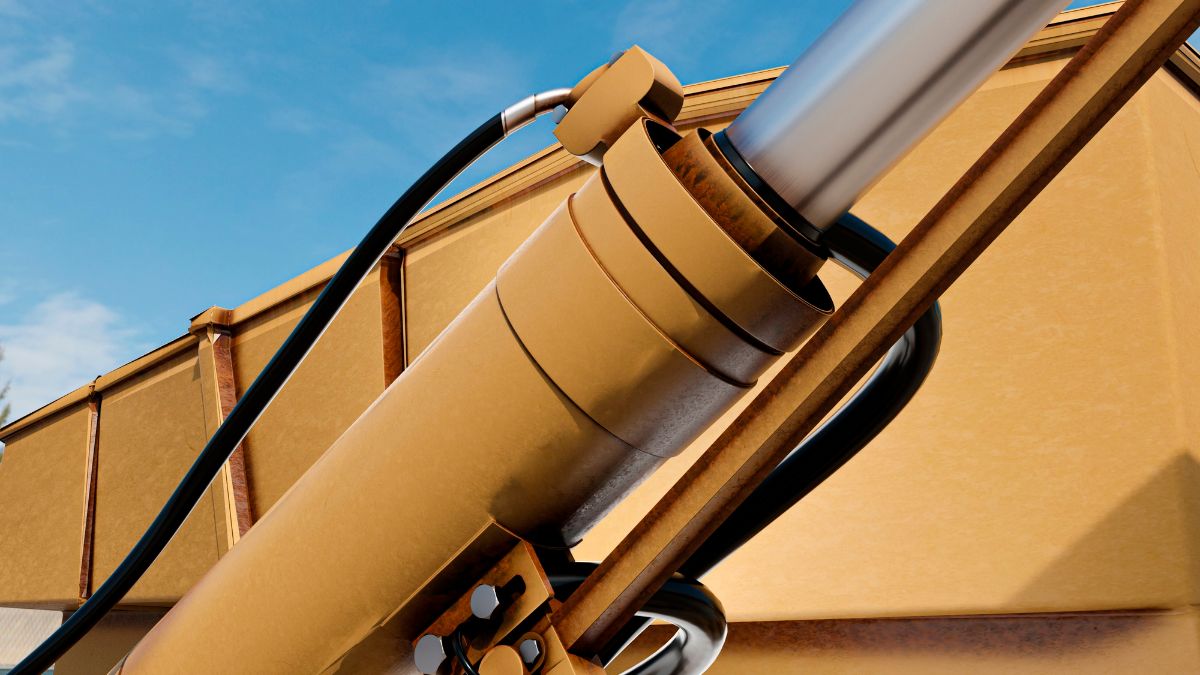
Hydraulic systems play a vital role in various industries, powering heavy machinery and equipment that make our lives simpler. These systems rely on hydraulic hoses to convey fluid and control machinery, making them critical. This comprehensive guide will delve into the importance of hydraulic systems, explore the common applications of hydraulic hoses in different industries, and provide valuable insights into proper maintenance and safety checks that can be gotten from services like TT Weber Hydraulics, which offers expert repairs that will quickly solve your need.
The Importance of Hydraulic Systems in Various Industries
Hydraulic systems are the unsung heroes behind many industries, discreetly powering everything from construction equipment to elevators. These systems utilize pressurized fluid to transmit force and motion, providing an efficient and reliable means of operation. They are extensively used in agriculture, construction, manufacturing, and even aerospace industries. For instance, in agriculture, hydraulic systems are responsible for lifting large loads, controlling plows, and operating irrigation systems. Without hydraulic systems, modern farming would be far less efficient and productive. In construction, hydraulic systems propel heavy machinery like excavators, bulldozers, and cranes. These machines rely on the precise control provided by hydraulic hoses to execute tasks that would be impossible with manual labor alone. Even the aerospace industry utilizes hydraulic systems for various applications, including controlling landing gear and supplying power to aircraft control surfaces. This assures the safety and functionality of airplanes during takeoff, landing, and flight.
What are Hydraulic Hoses?: Most Common Applications
Hydraulic hoses are the arteries of hydraulic systems responsible for transporting pressurized fluid between components. They are designed to withstand high pressure, assuring the smooth operation of machinery. Here are some of the most common applications of hydraulic hoses in various industries:
Agriculture
In agricultural equipment, hydraulic hoses power the movement of loaders, backhoes, and tractors. They also play a crucial role in regulating the hydraulics of irrigation systems, ensuring efficient water distribution.
Construction
Hydraulic hoses are essential in massive construction machinery. They facilitate the precise movement of excavator arms, the lifting of loads by cranes, and the operation of concrete pumps, among other duties.
Manufacturing
Hydraulic systems are prevalent in manufacturing facilities. They are used in devices that bend, cut, and shape materials precisely, making them indispensable for producing a wide range of products.
Aerospace
Hydraulic hoses are utilized in aircraft to power landing gear, brakes, and flight control surfaces. The reliability and efficacy of these hoses are critical for aviation safety.
Mining
In mining operations, hydraulic hoses are found in apparatus like hydraulic shovels and drilling machines. They provide the force required to move large volumes of earth and extract valuable minerals.
Automotive
Hydraulic hoses are used in vehicles for various applications, including power steering and braking systems. These hoses ensure that automobiles and trucks respond to driver inputs effectively and safely.
Proper Maintenance and Safety Checks
Maintaining hydraulic hoses is essential to guarantee their longevity and the safety of machinery operators. Here are some key maintenance and safety checks that should be conducted regularly:
Visual Inspection
Begin by visually inspecting hydraulic hoses for signs of deterioration, such as cracks, abrasions, or bulges. Any visible injury should be addressed immediately.
Leaks
Check for leakage in the hydraulic system. Leaking fluid can lead to reduced system efficiency and, in extreme cases, constitute a fire hazard. Address any breaches promptly.
Fittings and Connections
Examine hose couplings and connections to ensure they are tight and secure. Loose connections can result in fluid loss and decreased performance.
Replace Worn Hoses
Hoses have a finite lifespan and should be replaced when they exhibit signs of wear or damage. It’s essential to use hoses that meet industry standards and specifications.
Proper Storage
When not in use, hydraulic hoses should be stored appropriately, away from direct sunlight and extreme temperatures. This helps prevent premature aging and degradation of the cables.
Fluid Quality
Monitor the condition of the hydraulic fluid regularly. Contaminated or degraded fluid can lead to conduit and system damage. Change the fluid as needed and follow manufacturer recommendations.
Operating Temperature
Be mindful of the operating temperature of hydraulic systems. Extreme heat or cold can affect hose performance. Implement measures to protect hoses from temperature extremes.
Safety Measures
When you work with hydraulic systems, you need to ensure proper safety measures are in place. These measures include using protective gears, relieving system pressure before maintenance, and following industry safety rules and guidelines.
Conclusion
The unsung heroes who keep industries running smoothly are hydraulic hoses. Still, anyone dealing with hydraulic systems must comprehend their significance, common applications, and the necessity of appropriate maintenance and safety checks. Regular checks and upkeep may save repair costs, increase the lifespan of hydraulic hoses, and—most importantly—keep workers safe. Industries can continue to rely on hydraulic systems for their productivity and efficiency by adhering to these recommendations and exercising caution. The importance of hydraulic systems and the hoses that power them must ultimately be understood to continue to be an integral part of our daily lives.




